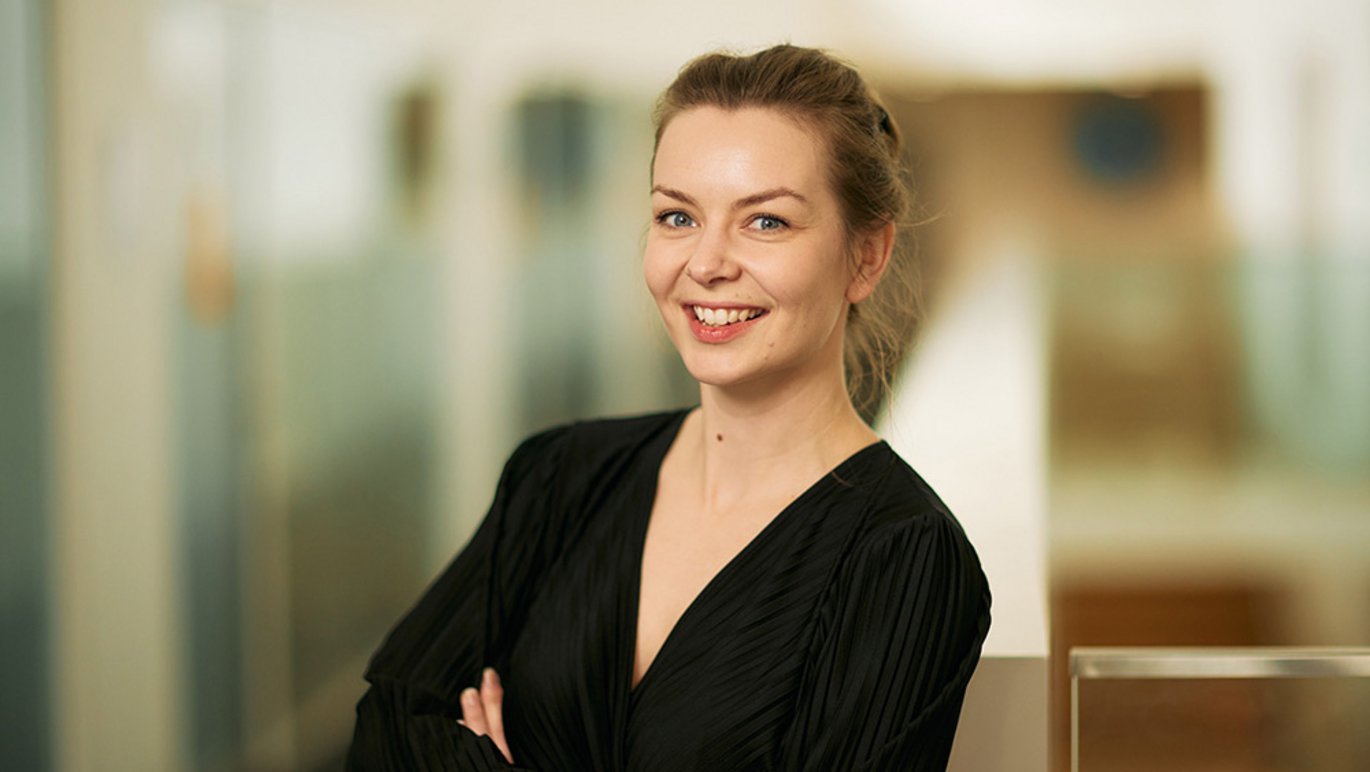Welcome to Elizabeth Smethurst
Elizabeth Smethurst is the new Head of Research Strategy, Communication and International Relations at NCMM.

Elizabeth Smethurst recently joined NCMM as the new Head of Research Strategy, Communication and International Relations. She brings with her several years of experience working similar roles in the UK.
Can you tell us a bit about your background?
I’m originally from Trondheim, but have lived the last 15+ years in the UK – all of my adult life! This is leaving me in the strange scenario where I have ‘come home’ but know very little about the reality of working life in Norway. Realise I might have become a little British over the years after all!
I am a researcher by training, having first completed a BSc in human genetics in Leeds, followed by a stint as a research assistant in lipid mass spectrometry at the Babraham Institute in Cambridge. I then completed a PhD in molecular oncology at the Weatherall Institute of Molecular Medicine (WIMM) at the University of Oxford, focusing on the DNA damage response.
As I was completing my PhD, I ultimately decided to pivot my career away from the lab bench but remain close to science and research. I initially worked as a research funding manager at Cancer Research UK in London (equivalent to Kreftforeningen here in Norway), with a particular focus on cancer early detection and a firm view to clinical impact and translation. I supported academics with guidance on grant applications, as well as working on a number of strategic projects around community building and supporting early career researchers.
I then came back to Oxford to head the research support team at the Said Business School, before returning to more familiar turf at the WIMM where I was the deputy lead administrator. In these roles, I was responsible for internal and external reporting, grants, finance, communications, strategy development and implementation, infrastructure projects, amongst other things (perhaps a little randomly also catering).
I’m hopeful that the experience and perspectives I bring with me from these roles will be of value as I start my new role here at NCMM.
What will be your role here at NCMM? What are some of the projects you will work on now?
I’ll be taking on the role of Head of Research Strategy, Communications and International Relations. The role is by design and necessity flexible in nature, delivering project and initiatives that are helpful to the NCMM research community and accelerates the NCMM research mission and strategy. To start with, I will work on the NCMM annual report and help organizing the Nordic EMBL Partnership meeting.
I hope to work closely with everyone at NCMM to ensure that the work I am doing is relevant to and supportive of the work you are all doing here and the aspirations of the Centre. I’ll be attending meetings and seminars and hope to meet you all over the coming weeks, but please don’t hesitate to reach out to me directly if you want to have a chat. You can typically find me in my office (E3, or if not there, getting hot water for a coffee) and I’m of course on email.
What motivated you to follow this career path?
I can boil my main motivating factors into a few key points; closeness to impactful research, strategic oversight, and continued learning.
I very much enjoy being involved in research even though I ultimately decided that working at the bench wasn’t my long-term calling. I’ve therefore looked for roles that allowed me to stay close to the research throughout my professional career and research administration seemed a natural choice.
I particularly enjoy understanding the bigger picture and the context surrounding my work, something I had not known much about as a student. Through my role at Cancer Research UK, I gained a broader perspective of cancer research, including the importance of considering clinical relevance and the translational pipeline. I also started to understand how a large research funder views the research environment and challenges in the field. My administrative roles at the University of Oxford showed me the other side of the coin of that same research environment.
My new role at NCMM is a good fit for me as it allows me to continue this learning, using and adapting my experience so far to a new environment.
What do you enjoy doing in your spare time?
At the moment, I spend most of my time getting to know Oslo and building a network here. I was hoping to become some kind of friluftsliv-menneske and do some hiking and skiing. Some might say this is a little out of character (my parents) and I’m fairly inexperienced in this beyond walking along the UK coast path so I’ll start with moderate ambitions and see how it goes.
I am a keen knitter and produce excessive amounts of mostly greyscale knitwear. Oslo seems to cater for this pretty well with lots of yarn shops dotted around, which is, in different ways, good and bad news for me.
Any tips on things to do in Oslo are very much welcome – I’m up for giving most things a try!